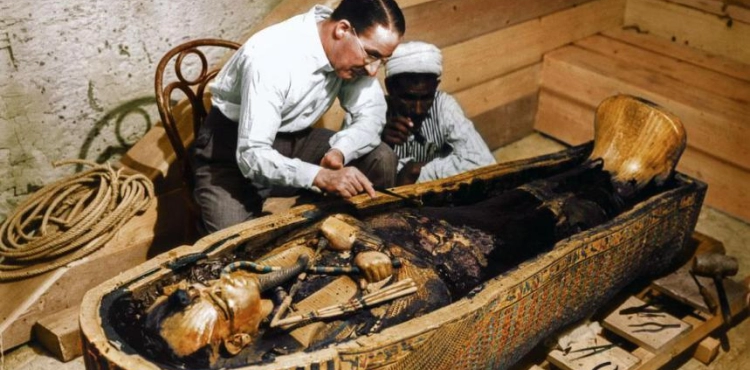Egyptian Prime Minister Mostafa Madbouly will inaugurate Sunday the 12th International Conference of Egyptian Scientists, which will be held in Cairo from 3 to 8 November.
The Secretary General of the Egyptian Supreme Council of Antiquities, Dr. Mostafa Waziri, told the German Press Agency (DPA) on Saturday, that 571 world scientists will participate in the sessions of the conference.
Vaziri pointed out that the conference will discuss the fate of King Tutankhamun´s mummy, whether it will remain inside his tomb on the western mainland of Luxor, or will be transferred to Cairo for restoration and protection, besides many researches discussing the use of modern techniques in the field of archaeological survey, and new in the field of Egyptology. Besides discussing ways of finding a joint cooperation between the institutes and research centers concerned with the study of Egyptology in various countries of the world.
Historians believe that Egyptology did not begin in the nineteenth century, but perhaps the interest of Egyptian antiquities extends to the fifth century BC, when Herodotus visited Egypt "to see its ancient antiquities" and then geographers and historians flocked to Egypt, such as " The tombs and temples of the kings and queens of ancient Egypt in Thebes, now Luxor, and the Colossi of Memnon at the entrance to the cemetery of Thebes, the Pyramids of Giza, the temples of Karnak, and other ancient Egyptian monuments, have attracted attention from that date until today.
According to Egyptian researcher and translator Rasha Salama, Egyptology has been linked to two historic events that are the starting point for that science, which is now being taught at the world´s largest universities.
According to Salama, the first event was the French campaign against Egypt in 1798 AD, "which opened the Nile Valley and its effects to scientific study," through the famous book "Description of Egypt", prepared by scientists of the French campaign.
Salameh told DPA that the second event was also French as Champollion succeeded in deciphering hieroglyphics.
According to Rasha Salama, the nineteenth century was the beginning of finding many archaeological discoveries in Egypt. Strongly, especially when the Egyptian Antiquities Authority and the Egyptian Museum were established, in order to protect and study ancient Egyptian antiquities, and carry out excavations and archaeological surveys in search of those relics to be available to researchers.
This coincided with the beginning of the organized studies of the ancient Egyptian language, and the effects of the Pharaohs, and Egyptology became attractive to many scientists from France, Britain, Germany, Italy, the United States of America, Switzerland, the Netherlands, Russia, Denmark and Sweden.
Excavators have been busy in the discovery of antiquities of ancient Egypt, and published dozens of books about those antiquities and description, reports on excavations and excavations, and lists of the contents of archaeological museums.
Today, Egyptology has become an exciting and eye-catching science and conferences, workshops and seminars are held by Egyptian scientists from different countries around the world.












